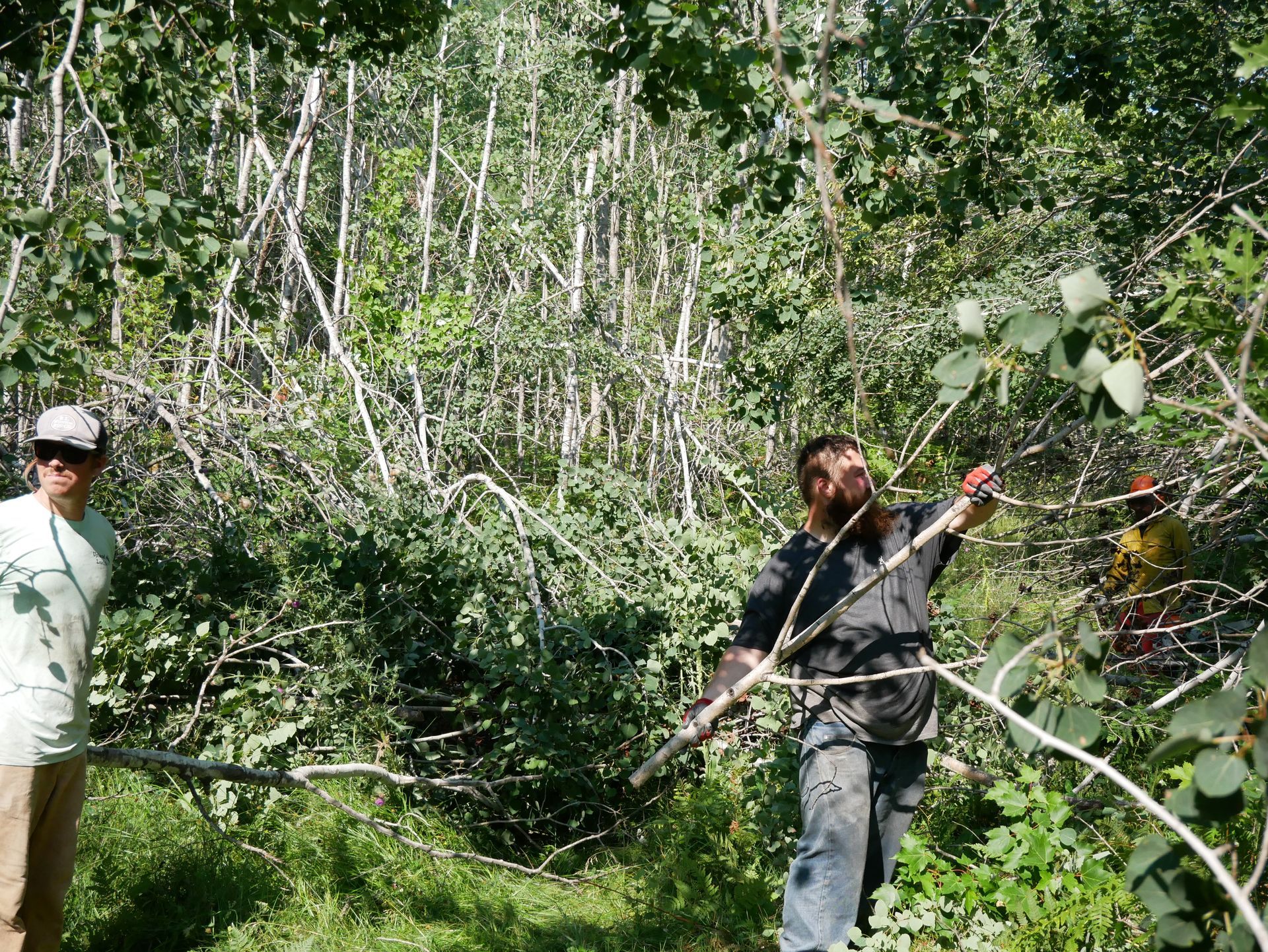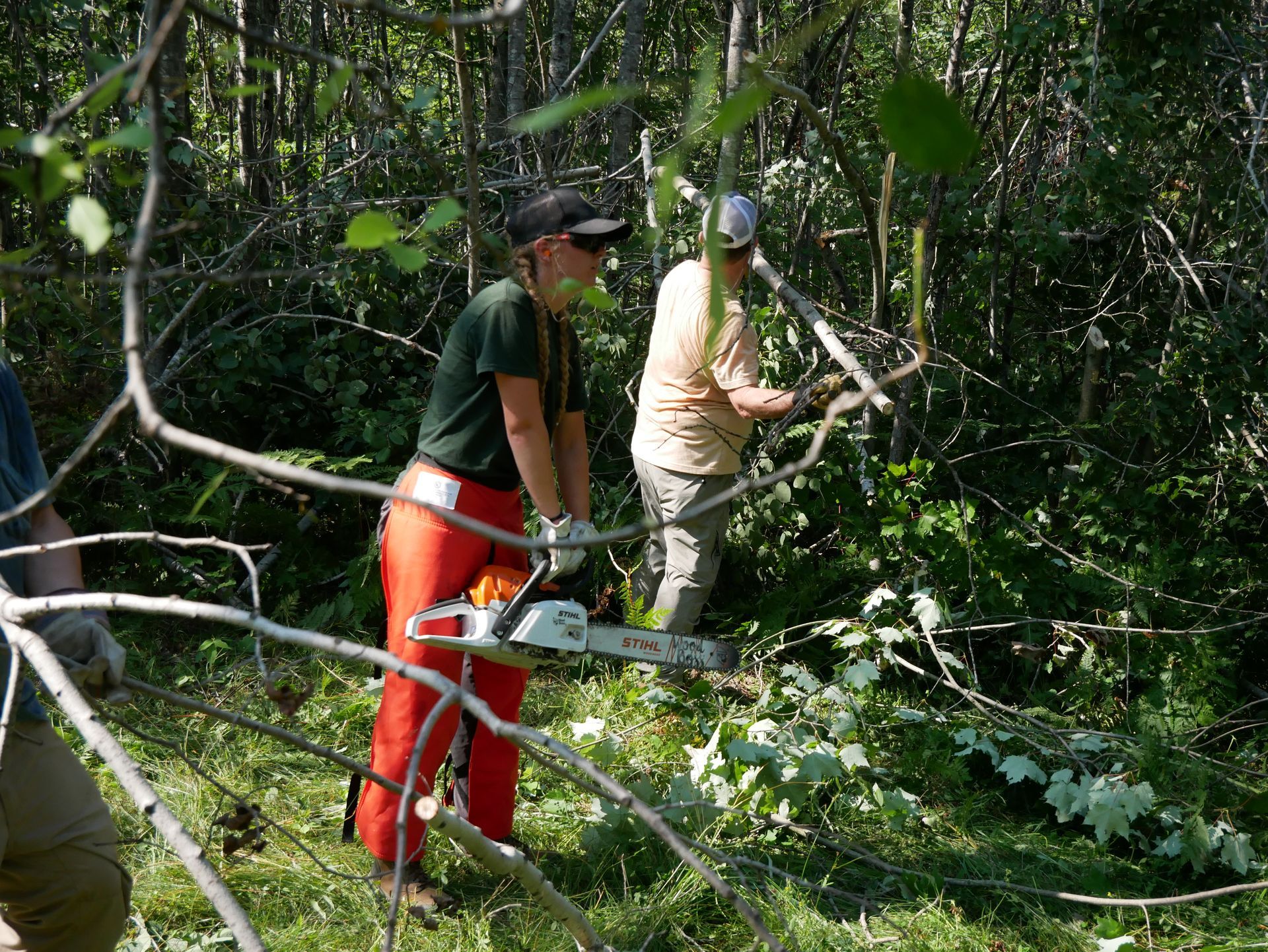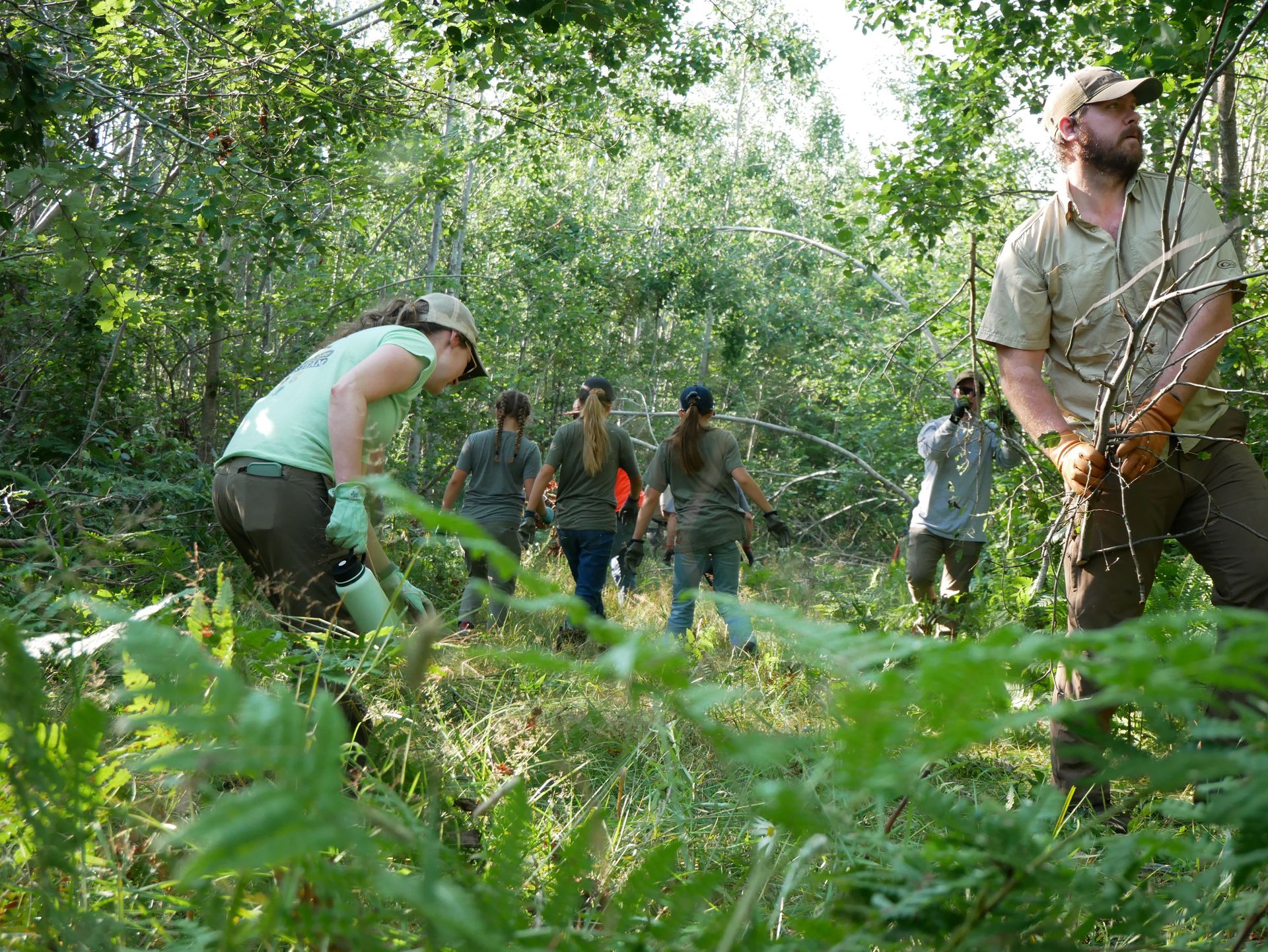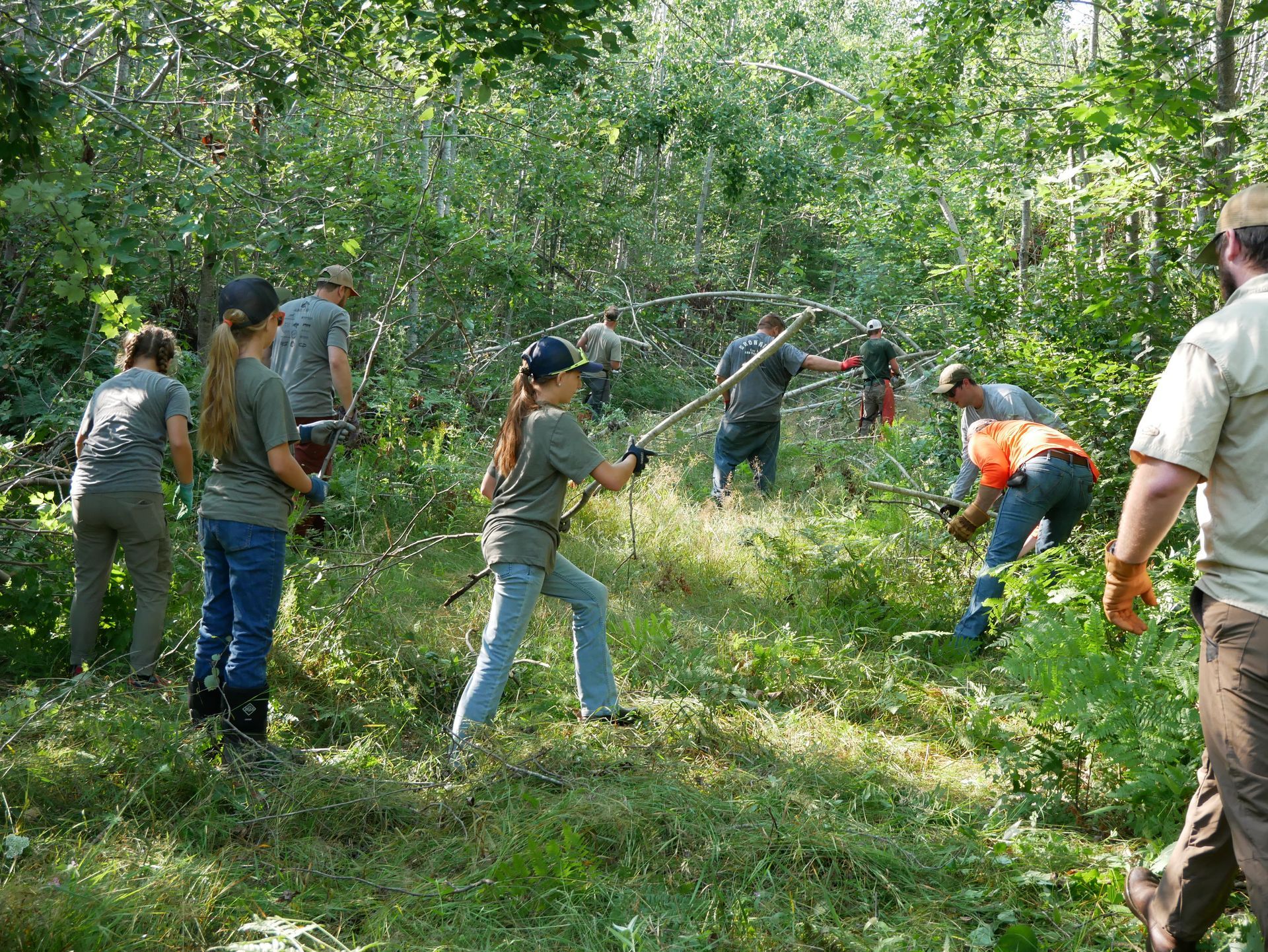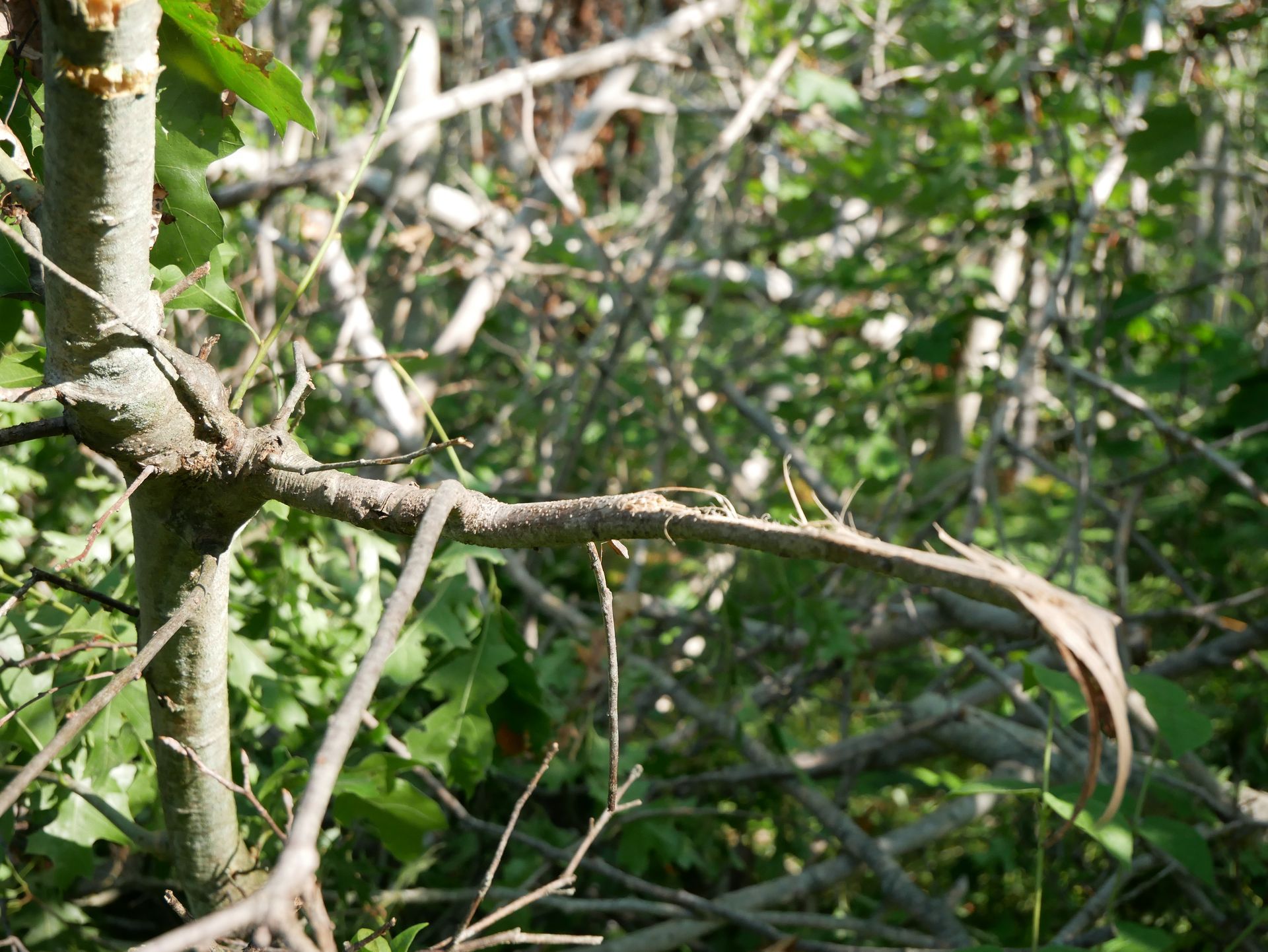Although the late-March 2025 ice storm was an unexpected and severe blow to northern Michigan, its effects were deeply felt, not just by people, but by wildlife, too. In the wake of widespread power outages and downed trees, Michiganders across the state sprang into action to help communities recover. From restoring electricity to clearing residential areas and state parks ahead of the camping season, teamwork and local resolve helped drive economic resilience and support for recreational infrastructure.
Yet despite that progress, many wildlife-access trails remain dangerous or blocked by lingering debris, with branches at risk of falling and invasive hazards still present. Fortunately, volunteer-driven efforts, like those organized by MUCC’s On the Ground program, play a critical role in filling this gap. This past weekend, 30 dedicated volunteers cleared debris from access trails and wildlife openings that would have taken months for the few local DNR staff to accomplish alone. This kind of volunteer engagement not only expedites habitat recovery, but it also empowers land managers to focus on future habitat projects and ensures that conservation funding, including hunter dollars, is put to the best use.

